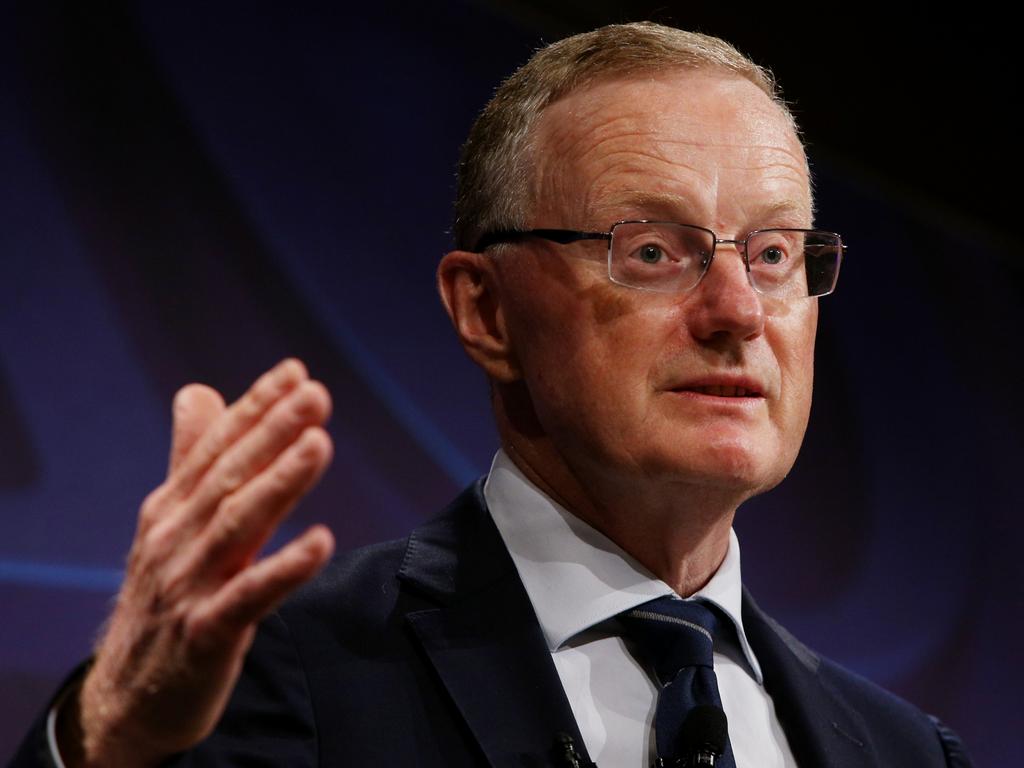Mortgage pain looms in interest rate-rise cycle
Australia’s biggest home lender expects the RBA to raise interest rates at the first opportunity after the federal election.

Australia’s biggest home lender expects the Reserve Bank to raise interest rates at the first opportunity after the federal election, putting borrowers under significant strain.
Economists at the Commonwealth Bank have brought forward to June their forecast for the first of four RBA rate hikes this year as inflation becomes entrenched in the 2 to 3 per cent target band and wages grow strongly as the nation moves towards full employment.
“The economy is not static,” CBA head of Australian economics Gareth Aird said in a research note, which has the 0.1 per cent cash rate rising to 1.25 per cent next year and tips a 10 per cent fall in home prices over 2023.
“Interest rate increases will generate changes in behaviour, which in turn will impact economic outcomes,” Mr Aird said.
CBA estimates there are more than one million home borrowers who have never experienced an increase in mortgage rates.
Mr Aird told The Australian the critical issue for borrowers was not the raw basis-point change in the cash rate, but for many homeowners the likely doubling in mortgage rates from about 2 per cent to 4 per cent over the coming 18 months.
“That will have a material impact on the economy and the RBA won’t have to raise official rates beyond 1.25 per cent,” he said.
With headline inflation at 3.5 per cent, well ahead of income growth, cost of living issues are set to dominate the coming federal election. Relieving those pressures on voters will be the focus of Josh Frydenberg’s fourth budget on March 29.
May 21 is the latest possible poll date if the Morrison government intends to hold a normal election, that is for the House of Representatives and half the Senate.
Surging global inflation, driven by supply chain disruptions and elevated energy prices, is forcing central banks to raise interest rates. In minutes from this month’s RBA board meeting, released on Tuesday, the central bank said it “is prepared to be patient as it monitors how the various factors affecting inflation in Australia evolve”. But it noted most market economists were now “expecting the first increase towards the latter part of 2022”.
CBA economists believe the RBA will shift to an “explicit hiking bias” at the May board meeting following “a big upside surprise” when underlying inflation figures for the March quarter are released on April 27.
Mr Aird said the RBA would not need another Consumer Price Index release, due in late July, but would simply seek to be satisfied that annual wages growth is moving to the desired pace of about 3 per cent. The March quarter Wage Price Index will be published on May 18, only days before the last Saturday Scott Morrison can set for the federal election.
Based on CBA’s loan expiry schedule and share of the market, there is likely to be about $500bn of fixed-rate mortgages expiring over the next two years. The bank estimates an average fixed-loan rate of between 2.25 to 2.5 per cent.
“Borrowers rolling off fixed rates will be refinancing loans at a materially higher rate, which will have a significant impact on the interest cost of debt and household finances,” Mr Aird said.
Last week, measured consumer confidence rose by 3.3 per cent, according to the ANZ-Roy Morgan survey released on Tuesday, despite petrol prices at the pump reaching record highs.
ANZ’s head of Australian economics, David Plank, noted that while confidence rose above the neutral level of 100, “it is still well below its long-run average, so we can’t say higher inflation isn’t having an impact”.
ANZ expects the so-called “terminal cash rate” could be as high as “3-something” per cent in this tightening cycle due to the vast savings buffers built up by households during the pandemic.
On Friday, RBA governor Philip Lowe told a parliamentary hearing it was “plausible” the cash rate would rise this year, a change in the “forward guidance” of the February 1 board minutes. In his testimony, Dr Lowe also said lifting rates prematurely could jeopardise an anticipated fall this year in unemployment to its lowest rate since the early 1970s.
Westpac chief economist Bill Evans is holding to August for the first RBA move, after two more CPI releases, with a peak cash rate of 1.75 per cent in early 2024.
“If our forecast that annual underlying inflation reaches 3.5 per cent by June compared with the RBA’s current forecast of 3.25 per cent, then that is likely to be sufficient to convince the board to begin the cycle in August, particularly when prospects for any real contraction in the stimulatory but ‘bloated’ balance sheet appear to be a long way off,” Mr Evans said.








To join the conversation, please log in. Don't have an account? Register
Join the conversation, you are commenting as Logout